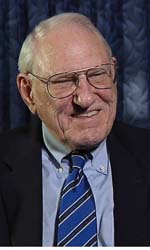Restaurant Workers Deserve a Livable Wage, Too
The federal minimum wage for tipped workers hasn’t gone up in over 30 years. Workers in several states are taking on the industry to change that.
To really take on grandiosity and greed, a new report from a prestigious CEO pay watchdog suggests, we may need to shove onto the global political stage the notion of a maximum wage.
By Sam Pizzigati

Over 20 years ago, Fortune 500 CEO Harold McInnes saw the narcissism coming — into America’s executive suites.
Narcissists don’t happen to be particularly nice people. They preen. They grab. And they never ever really feel our pain.
Narcissists, some fascinating new business school research reminds us, also don’t make for particularly effective corporate CEOs.
This new research — out of the University of Southern California and the University of Arizona — examines the impact of CEO narcissism on corporate tax policies. That impact turns out to be fairly robust. The corporations that America most narcissistic CEOs run seem to be prone to engaging in highly risky corporate tax-avoidance maneuvers.
How did the authors of this new research, Kari Joseph Olsen and James Stekelberg, identify the narcissists in America’s top CEO suites? They used a variety of yardsticks, everything from the pay gap between CEOs and their fellow execs to the prominence of CEO photos in corporate annual reports.
In the end, the two business school researchers had no problem finding a statistically significant subset of CEO narcissists within the Fortune 500. And that hefty number of narcissist CEOs begs a rather obvious question: Do narcissists just naturally gravitate to America’s corporate pay summit or do the incredibly cushy rewards at that summit turn otherwise normal people into narcissists?
Until fairly recently social scientists left that sort of question to philosophers. But recent years have brought a surge of research into the impact of affluence on behavior. Experiments and field observations have shown that upper-crust life may be breeding, as University of California-Berkeley psychologist Paul Piff puts it, “increased entitlement and narcissism.”[pullquote]CEO Harold MacInnes believed that chief execs ought not make over 14 times what their workers take home.[/pullquote]
None of this, Forbes commentator Elizabeth MacBride suggested last week, would likely surprise Harold McInnes, the former CEO at AMP, the Pennsylvania-based company that rated a quarter-century ago as the world’s largest supplier of electronic connectors and America’s 150th-largest corporation.
MacBride still vividly remembers interviewing McInnes before his 1992 retirement, after the MIT-trained engineer had pledged not to take, as CEO, any more than 14 times the wage of AMP’s lowest-paid worker.
MacBride asked McInnes why he made that pledge. Excessive compensation, McInnes told her, can ruin a CEO’s judgment. Indeed, MacBride would soon learn, McInnes considered excessive compensation no less dangerous to a chief executive than an excessive intake of alcohol.
In effect, McInnes saw the narcissism coming — and tried to do his part to derail the onrushing excessive pay engine.
Now we need to do ours. Quickly. America’s top CEOs are now pulling down well over 300 times what their workers average.
Where to start? In London last week, Britain’s most respected watchdog over executive compensation — the High Pay Centre — released a new paper that spells out eight specific moves that could help modern industrial societies “deliver fairer, more proportionate pay for those at the top.”[pullquote]The new High Pay Centre report calls for worker representation on all corporate boards of directors and executive pay panels.[/pullquote]
Most of the moves on this valuable new list haven’t yet gained much traction in the United States. The High Pay Centre report, for instance, calls for worker representation on all corporate boards of directors and executive pay panels. Taking such a step, the new How to Make Top Pay Fairer report notes, would “bring a degree of ‘real world’ perspective to deliberations on executive pay.”
The boldest proposal on the High Pay Centre list? A cap on executive pay set at a fixed multiple of a corporation’s lowest-paid employee.
“We need to build an economy where people are paid fair and sensible amounts of money for the work that they do and the incomes of the super-rich aren’t racing away from everybody else,” explains High Pay Centre director Deborah Hargreaves, the former business editor at the UK’s Guardian daily newspaper.
[toomuch_promo]“A maximum pay ratio would recognize the important principle that all workers should share in a company’s success,” adds Hargreaves. “The idea must now be properly debated.”
Sam Pizzigati edits Too Much, the Institute for Policy Studies online weekly on excess and inequality. His latest book: The Rich Don’t Always Win: The Forgotten Triumph over Plutocracy that Created the American Middle Class (Seven Stories Press).